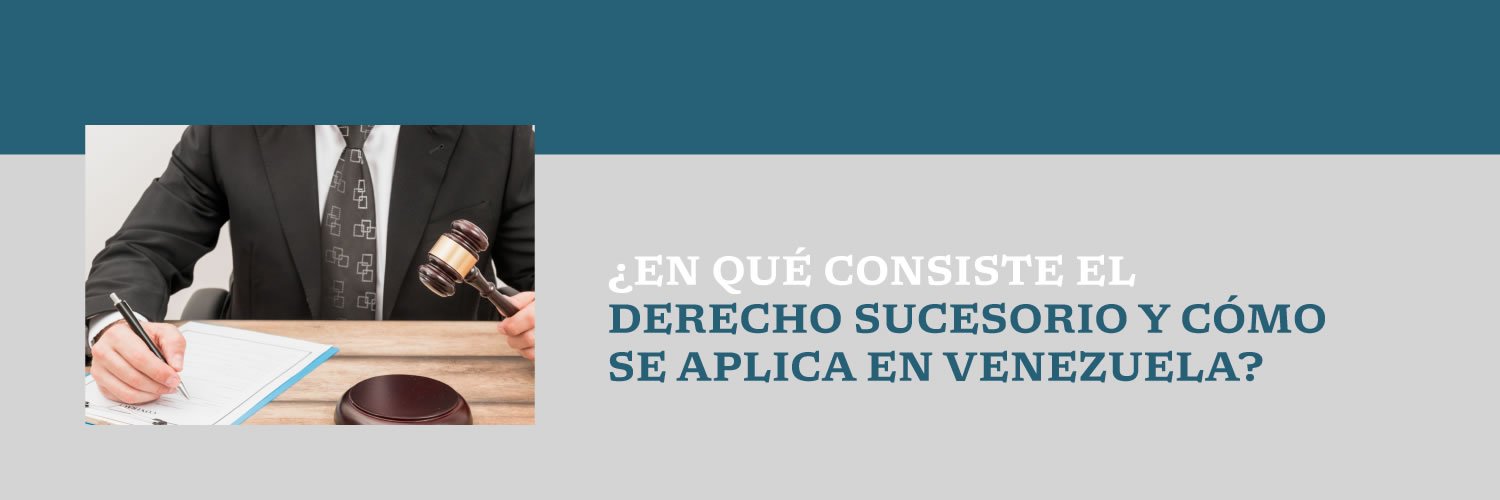Inheritance law is the legal rules that regulate and govern the inheritance of property by inheritance. It is in charge of interceding in the transmission of property, assets and obligations of deceased persons to their heirs. This is one of the most common legal procedures in the day to day life of a lawyer, since it is an obligation to change the ownership of a property or company in case of death. In that sense, in order to prepare our clients in these legal processes, this article will talk about inheritance law and how it is applied in Venezuela.
This branch of law is considered a way of acquiring the patrimonial property, since being a change of ownership by derivation guarantees the perpetuity of the property right within the same circle. It is regulated in the Venezuelan Civil Code (from Article 807 to 1132) and the Inheritance, gift and related tax law. In order to apply this law, it is advisable to turn to experts in inheritance law to avoid misunderstandings due to lack of knowledge.
How does inheritance law work?
In order to start an inheritance process, the prevention that the deceased may have had by leaving a will and the possible heirs by right must be taken into account. Upon issuance of the death certificate, the transfer of the estate can begin.
After 180 working days from the day following the death of the original owner of the assets, his relatives must go to the SENIAT nearest to the assets to file the Inheritance Declaration. They must bring all the documents required by law to accredit or prove the circumstances that identify the kinship and right in the inheritance. In order to proceed with the declaration all heirs must be registered in the RIF and attach a copy.
Types of successions
Private successions: are those legal processes in which the totality of the patrimonial assets are transferred to a natural or juridical person by means of the will. It is common when the heir is not related to a family, the transfer is made through a will, so the process is understood as a bequest by agreement.
Universal inheritance: in this case, the totality of assets, shares, rights, obligations, titles, debts, among others, are transferred to the heirs. This is a supplementary regime in the event that the owner dies without a will or did not distribute the totality of the assets in the will.
There are cases in which both types of inheritance must be carried out at the same time because there are different types of assets to be distributed. In general, the situations that involve this procedure are determined because there are several assets that must be distributed among relatives and third parties as a legacy.
Tips at the time of filing with the SENIAT
1- The Probate Declaration should be drafted by an attorney experienced in these legal procedures. This will help you to correctly communicate the declaration using the appropriate legal language for the case.
2- To go to an expert lawyer in inheritance law, since he/she will indicate you the requirements that must be consigned by law. In this way the procedural forms, legal precisions and general actions would be supported by a professional, becoming visible in the effectiveness of the processes.
3- In the event that the grandparents have left an inheritance and one of their children dies without claiming it, the children of the grandparents can declare that inheritance. To do so, the grandchildren must first make the grandparents' declaration (in case they do not have it) and then that of their parents. Therefore, it is understood that there must be an inheritance declaration for each deceased person.
If you would like more information or need advice on this and other issues of criminal and commercial law, do not hesitate to contact us at contact us at. We also share with you our social networks so that you can keep updated on the legal topics that are in trend: Instagram, Facebook, Twitter y Linkedin.













